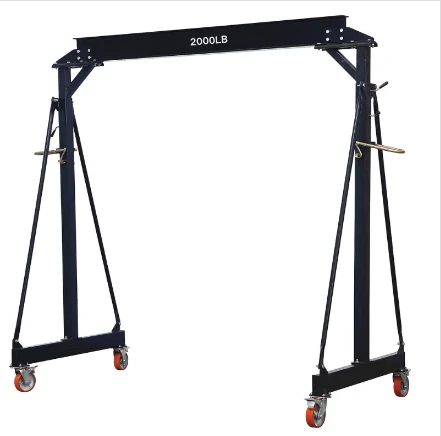heavy equipment rollers
Understanding Heavy Equipment Rollers A Comprehensive Overview
Heavy equipment rollers are crucial machines used in construction, road building, and various engineering projects. These powerful machines are designed to compact soil, asphalt, and other materials, ensuring a stable and solid foundation for roadways, bridges, and other infrastructure. In this article, we will explore the different types of rollers, their functions, and their significance in construction and civil engineering.
Types of Heavy Equipment Rollers
Heavy equipment rollers come in various types, each designed for specific applications. The primary types include
1. Static Rollers These machines rely on their weight to compress materials. They are commonly used for compacting dirt and gravel, helping to create strong sub-bases for construction projects.
2. Vibratory Rollers Equipped with a mechanism that generates vibrations, these rollers can achieve higher compaction levels than static rollers. They are particularly effective for asphalt and granular materials. Vibratory rollers often come with single or double drums, allowing for different compaction techniques and versatility on the job site.
3. Pneumatic Rollers These rollers use rubber tires to compact materials, providing a unique combination of pressure and flexibility. Pneumatic rollers are particularly effective for compacting asphalt due to their ability to provide a smoother finish and reduce segregation in the material.
4. Soil Compactors These are specialized rollers designed for use on a variety of soil types. They often feature features like oscillation and kneading actions to effectively compact cohesive and non-cohesive soils.
5. Asphalt Rollers Specifically designed for asphalt compaction, these rollers often have a smooth drum to ensure a quality finish. They are critical in paving applications after asphalt has been laid down, ensuring it has the necessary density and smoothness for vehicular traffic.
heavy equipment rollers

Functions and Importance
The primary function of heavy equipment rollers is to compact materials, which provides stability and durability to the ground. Proper compaction prevents issues such as settling or shifting, which can lead to road damage and safety hazards. Here are some key functions and benefits of using rollers in construction
- Improved Load-bearing Capacity Compacted soil or asphalt can bear significant loads without deformation. This capability is essential for ensuring that structures like roads and buildings remain safe and usable over time.
- Enhanced Surface Finish Rollers provide a smooth, uniform surface, crucial for road construction. Even minor imperfections in road surfaces can lead to increased wear on vehicles and reduced safety for drivers.
- Time and Cost Efficiency Using heavy equipment rollers streamlines the compaction process, allowing for quicker project completion. This efficiency not only saves time but also reduces labor costs on site.
- Versatility Rollers are used in a wide variety of projects, from simple driveways to extensive highway systems. Their adaptability means they can be used across various terrains and materials, making them indispensable in the construction industry.
Conclusion
Heavy equipment rollers play an integral role in construction and civil engineering projects. Their various types and capabilities ensure that they can meet the diverse needs of any job site, whether it’s compacting soil for a new building or paving a highway. As technology advances, rollers are becoming more sophisticated, incorporating features such as GPS for precision compaction and hybrid systems for enhanced efficiency.
Overall, understanding the different types of rollers and their applications can help project managers and construction teams choose the right equipment for their specific needs. Investing in the right heavy equipment roller can lead to better project outcomes, ensuring that foundations are secure, surfaces are smooth, and ultimately, that infrastructure is safe and durable for future generations.
-
Unlock Seamless Relocation with Our Heavy Equipment Moving ExpertiseNewsJun.06,2025
-
Unleash Unrivaled Flexibility with Our Adjustable Gantry CraneNewsJun.06,2025
-
Unleash Heavy-Duty Efficiency with Our Industrial Gantry Crane SolutionsNewsJun.06,2025
-
Revolutionize Steel Handling with Our Magnetic Lifter RangeNewsJun.06,2025
-
Master Equipment Mobility with Premium Machinery Mover SolutionsNewsJun.06,2025
-
Elevate Your Material Handling with Magnetic Lifter TechnologyNewsJun.06,2025
-
YS Permanent Lifting Magnets: The Smarter Way to Handle SteelNewsMay.22,2025
